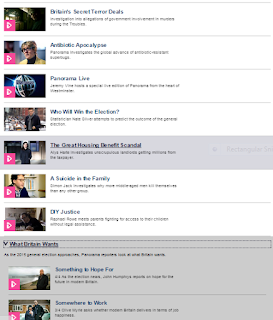Now that the election is but a distant memory, the Andrew Marr Show and The Sunday Politics have lost their lustre. Both now seem directionless. Andrew Marr tries to generate some vitality by punching the air with his good arm, but it’s no good.
I suppose the Labour leadership is vaguely interesting to Labour voters. As I watched Yvette Cooper a huge amount of indifference and gloom descended. She seemed to be saying a whole lot of words and sentences that had no meaning.
I was trying to read an article in the Times by Tom Holland (£) at the same time, but I did observe that Yvette has got quite a small head and rather large feet. Imagine being married to Ed Balls.
Tom Holland has decided that Islam could be reformed if only Muslims were willing to take the prophet Mohammed’s life story with a pinch of salt, since it was written many years after the event, and its accuracy could not be guaranteed. If only some of those literal interpretations of Mohammed’s more unsavoury lifestyle choices could be ditched, posited Tom wistfully, Islam might actually become worthy of its claim to be a religion of peace. All you need is love. It seems a bit of a long shot. Good read though.
Anyway, Andrew Neil, everyone’s favourite interviewer, tenacious, sharp and ferocious, lost both his bark and his bite, dammit, at a most inopportune moment. On interviewing George Galloway he just went all limp.
I tried to see if I could spot where Galloway’s hat was, to no avail. Someone must have persuaded him to take it off and maybe leave it out of camera shot, which must have taken some coaxing. “Hats off” to whoever managed that.
As. You know, Galloway wears the hat at all times including in the bedroom. You saw it when he announced, from the end of the bed through the medium of Twitter, that his next project was to be London Mayor.
For some reason Andrew Neil had turned on the saccharine; he and George chatted away amiably about Lutfur Rahman and other matters of interest.
“You declared Bradford an Israel-free zone” challenged Andrew, smiling with amusement. “Will you be doing the same for London?” he probed in jest.
“No” his chum replied. “It would certainly be my aim to encourage support for the Palestinians. London has more supporters of Palestinians than any other part of the country” said he, modestly. “Me and Ken Livingstone are exceedingly fond of the religion of peace” he added, or something to that effect.
I wonder if IS would let him wear the hat, should he decide to travel. They’re sharp dressers As. You know.





























